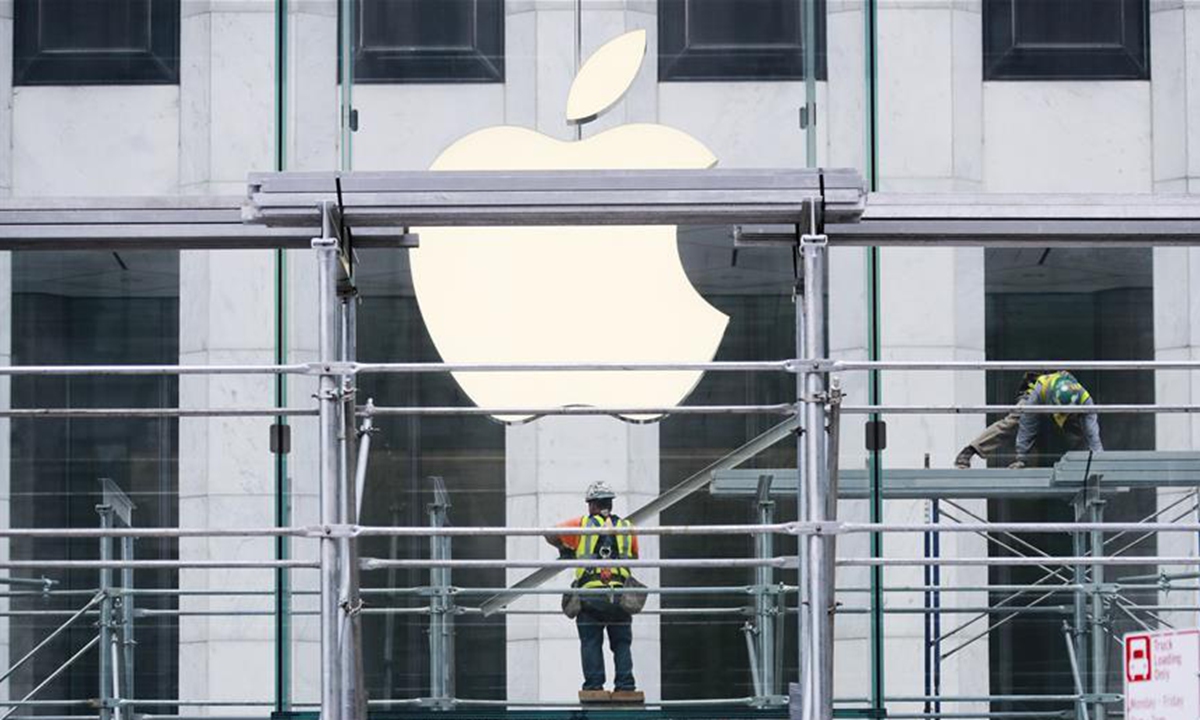SOURCE / INDUSTRIES
Apple’s reported shift to India won’t undermine China’s position as a manufacturing base: insider

Workers remove the blocks around an Apple store on Fifth Avenue during the phase one reopening in New York, the United States, June 12, 2020. (Xinhua/Wang Ying)
Apple has reportedly begun iPhone SE assembly in India in an attempt to avoid a steep tax levied on smartphones imported into the country. The move is unlikely to undermine China's position as a manufacturing base, industry insiders said.
Apple has told at least one of its suppliers in China to start shipping components for the 2020 iPhone SE to Indian manufacturing partners. This will start the process for assembling the new iPhone in India, allowing the company to work around hefty import taxes, according to appleinsider.com, citing people familiar with the matter.
Apple's manufacturing partner in India for the 2020 iPhone SE is Wistron, according to a report on Thursday morning by The Information. Apple's other main manufacturing partner, Foxconn, also has a presence in the country, but it does not appear that they are involved in iPhone SE assembly in India.
The news of iPhone SE assembly in India comes two weeks after an initiative by the Indian government to increase manufacturing in the country. Following the loosening of factory device taxation, Apple is reportedly seeking to shift roughly a fifth of existing China-based output to India, which could equate to $40 billion in local manufacturing revenues over the next five years, and could make Apple India's largest exporter in the process, according to appleinsider.com.
It would be a sensible move if Apple decides to look at more than one manufacturing base, given the recent incentive schemes that the Indian government has released as part of the "make in India" policy, as well as the geopolitical instability in the global market since last year, Nicole Peng, Asia-Pacific director at research firm Canalys, told the Global Times on Friday.
India is a promising candidate compared with other manufacturing bases such as Vietnam and Indonesia due to the huge market size and the proximity to South Asia, the Middle East and Africa.
However, she said it doesn't mean it will undermine China's position as a manufacturing base. In fact, it could drive China toward manufacturing of higher-value goods that require more skilled Chinese workers.


